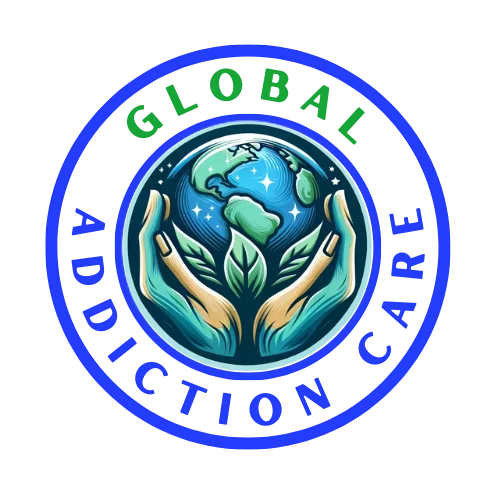Around the world, people are facing a tough battle against addiction. It’s a problem that sneaks into lives, affecting not just individuals, but also their families and communities. In every corner of the globe, from big cities to small villages, addiction is a challenge that comes in many forms – alcohol, drugs, and even behaviors like gambling.
It’s a struggle that doesn’t discriminate, impacting people of all ages, backgrounds, and cultures. Despite the best efforts of doctors and support groups, the fight against addiction remains a steep uphill climb, with many seeking a ray of hope for a better, healthier life.
In this global scenario, a new chapter is unfolding in Serbia, a country in Southeast Europe. Serbia is stepping up, becoming a beacon of hope in the world of addiction treatment and recovery. The country’s approach is evolving, blending traditional methods with innovative techniques to help those grappling with addiction.
As Serbia transforms its landscape of treatment and recovery, it’s not just improving the lives of its own citizens; it’s also setting an example for the world. With a mix of government support, community involvement, and modern facilities, Serbia is on its way to becoming a key player in the global fight against addiction.
Table of Contents
Historical Context of Addiction Treatment in Serbia
So, you know, back in the day, Serbia, like many countries, had its fair share of challenges with addiction. It’s been a journey, really. Initially, the approach to treating addiction in Serbia was pretty traditional and, honestly, a bit rigid. We’re talking about times when understanding of addiction was more limited, and society’s views were, let’s say, less compassionate compared to today.
In those days, addiction was often seen more as a moral failing or a lack of willpower rather than a medical issue. So, the treatment methods? Well, they were pretty basic and heavily focused on abstinence. This was a time when support systems were minimal, and the whole idea of rehabilitation was still in its infancy. It wasn’t just about the lack of resources; there was also a significant stigma attached to addiction, making it harder for people to seek help.
But here’s the interesting bit: Serbian society has always been deeply connected, with strong community ties. This aspect, believe it or not, played a crucial role in shaping the approach to addiction treatment. Even when official support was lacking, communities and families often stepped in to fill the gaps.
Modern Advances in Serbian Addiction Treatment
Here are some key points highlighting the modern advances in Serbian addiction treatment:
- Integration of Holistic Therapies: Serbia has been embracing holistic approaches, such as mindfulness, yoga, and art therapy, which complement traditional treatment methods.
- Evidence-Based Practices: There’s a growing emphasis on evidence-based treatments like Cognitive Behavioral Therapy (CBT) and Dialectical Behavior Therapy (DBT).
- Advanced Medical Treatments: Utilization of newer pharmacological interventions, including medications for detoxification and maintenance, to aid in addiction recovery.
- Training and Education: Increased focus on training healthcare professionals in the latest addiction treatment methods, ensuring up-to-date knowledge and practices.
- Governmental Support: The Serbian government is providing more support for addiction treatment, including funding and policy reforms that make treatment more accessible.
- Community-Based Programs: Development of community-based recovery programs, offering support networks and resources for individuals post-treatment.
- Public Awareness Campaigns: Efforts to raise public awareness about addiction, reducing stigma and promoting understanding of addiction as a medical condition.
- Research and Development: Investment in research to better understand addiction and its treatments, leading to more effective and personalized care strategies.
- International Collaboration: Serbia is increasingly collaborating with international experts and organizations to exchange knowledge and best practices in addiction treatment.
- Aftercare and Relapse Prevention: Stronger focus on aftercare services and relapse prevention strategies to ensure long-term recovery and support for individuals.
Success Stories from Serbia
First off, the treatment programs in Serbia? They’re doing some really impressive stuff lately. There’s this one program that’s been a game-changer for many. It’s all about personalized treatment plans, you know, where they tailor the therapy to fit each individual. This isn’t your one-size-fits-all deal; it’s about understanding that everyone’s journey with addiction is unique.
They’ve got a mix of therapies, from the classic counseling sessions to more modern techniques like mindfulness training. And guess what? The results have been fantastic. People are not just getting better; they’re learning how to stay better. It’s like they’re being equipped with a whole toolbox of strategies to handle life post-addiction.
And the community support, oh boy, that’s been a cornerstone in all this. It’s amazing how the community rallies around individuals in recovery. There are stories of local groups organizing support meetups, families getting involved in the therapy process, and even neighbors playing a part in creating a supportive environment.
This community vibe, it’s making a huge difference. It’s like people in recovery are getting this safety net, you know? They’re not just facing the tough road to recovery alone; they’ve got a whole team cheering them on. It’s really heartwarming to see how a little bit of support and understanding from the community can go such a long way in helping someone turn their life around.
Serbia’s Role in International Addiction Treatment
Here are the key points about Serbia’s role in international addiction treatment:
- Global Collaboration: Serbia is actively collaborating with international organizations and experts in addiction treatment to exchange knowledge and best practices.
- Training and Workshops: The country is hosting international training programs and workshops for addiction treatment professionals, sharing its own advancements and learning from others.
- Research Contributions: Serbian researchers and institutions are contributing to global addiction studies, providing valuable insights and data.
- Policy Influence: Serbia’s innovative approaches and policies in addiction treatment are influencing other countries, especially in the Balkan region.
- International Conferences and Seminars: Serbia is increasingly involved in hosting and participating in international conferences on addiction and recovery, showcasing its progress and learning from global trends.
- Cross-Border Initiatives: Engaging in cross-border initiatives to tackle addiction, particularly in dealing with drug trafficking and substance abuse.
- Cultural Exchange Programs: Facilitating cultural exchange programs that include aspects of addiction treatment and prevention, fostering a broader understanding of different approaches.
- Specialized Treatment Centers: Some Serbian treatment centers are attracting international patients, offering high-quality care and specialized programs.
- Advocacy and Awareness: Serbian organizations are part of international advocacy networks, promoting awareness about addiction and the importance of effective treatment.
- Partnerships for Development: Forming partnerships with international health organizations to develop better infrastructure and systems for addiction treatment.
Challenges and Opportunities in Serbia’s Addiction Treatment and Recovery
Understanding the challenges and opportunities is crucial for policymakers, healthcare providers, and international collaborators aiming to support and enhance Serbia’s role in the field of addiction treatment and recovery.
| Challenges in Serbia’s Addiction Treatment | Opportunities for Growth and Innovation |
|---|---|
| Limited funding and resources for addiction treatment programs | Potential for international funding and collaboration |
| Societal stigma surrounding addiction and mental health | Raising public awareness and education to reduce stigma |
| Inadequate training and support for healthcare professionals in addiction treatment | Opportunities for specialized training and education programs |
| Lack of a comprehensive national policy on addiction treatment | Potential for policy development and implementation |
| Limited access to modern and innovative treatment methods | Scope for the development and adoption of cutting-edge treatment techniques |
| Regional disparities in the availability and quality of treatment | Opportunity to develop a more equitable and accessible national treatment network |
Are you interested in learning more about addiction treatment and recovery in Serbia? Don’t hesitate to reach out to us! We’re here to provide you with valuable insights, information, and resources on this vital topic.
Contact us today to start your journey towards understanding Serbia’s pioneering role in addiction treatment. Together, we can make a difference in the lives of those seeking recovery.




